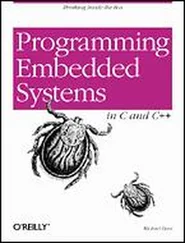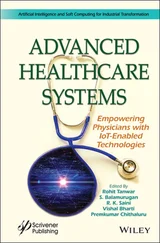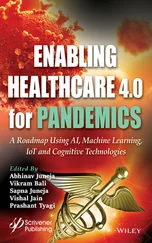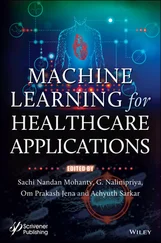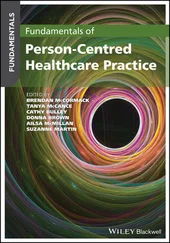Having crossed the Atlantic, the next international destination was the Mediterranean, and so the 8th GISEH conference came to Casablanca in the summer of 2016. It was hosted at the Université Mohammed VI des Sciences de la Santé and organized under the theme, “The Hospital and the Territorialization of Health: Transversality as a Key Factor of Sustainable Performance”. It brought together 167 participants eager to discuss different health systems and multiple health situations. The French-speaking community of GISEH was thus fully established and served.
The 9th GISEH was organized in the summer of 2018 at the Hôpitaux Universitaires de Genève. The aim of GISEH 2018 was to focus on the performance of health systems, networks and institutions. Its objectives were to take stock of the situation, identify the causes of the problems and investigate the avenues and mechanisms that could be employed to improve the performance of health systems, networks and institutions. 260 participants promoted discussion on these themes through 76 presentations.
In 2020 the world was faced with a pandemic that led governments to confine over half of the human population. The Université Polytechnique Hauts-de-France continued to host the 10th GISEH, despite the travel constraints imposed by the health situation, by conducting the event through videoconferences. The theme for GISEH 2020 was, “Towards Innovative Health and Healthcare Institutions, Integrated in their Environments and Performance”. One of the objectives was to study the integration of the hospital into healthcare and prevention approaches. There was also a focus on the situation of vulnerable people: children, the elderly, people with disabilities, people with cancer, etc. Thirty-five presentations were delivered despite the Covid-19 pandemic.
Thus far, 10 GISEH conferences have been held in French-speaking countries over the past 18 years. Academics and hospital staff, driven by the social, economic and environmental efficiency of essential human systems working towards the well-being of humanity, will have shared their ideas, built projects, put their solutions into practice and built common skills. At the ripe age of 63, I am leaving for the militant world of mutual insurance companies in healthcare. I leave the GISEH conferences in the capable hands of Philippe Wieser and Sondès Chaabane, two friends who have already made invaluable contributions to the success of these conferences.
Alain Guinet
Emeritus Professor
Chairman of the GISEH Steering Committee, 2003–2020
October 2021
Healthcare institutions will evolve towards becoming more innovative institutions by pursuing defined paths that consider risk factors and the collective and individual context of patients. They will take advantage of information technologies, scientific methods and mass data to prevent, anticipate, monitor and follow developments in public health, in order to intervene at the right time with the right tools. They will focus on people, be it the patient, the citizen or the caregivers by providing a high-performance health environment that meets safety, quality and productivity requirements.
The theme of this book centers around the engineering and management of healthcare and healthcare institutions, with the aim of making them agile and integrated into their environments. The book thus deals with the “hospital” system and the path to good health: issues, prevention approaches, data/IT, organizational innovations and recent technological solutions. It also opens up new opportunities for improving hospital systems with advances in artificial intelligence, information systems and service robotics.
The current context of the Covid-19 pandemic that we have been experiencing since early 2020 has only confirmed this need for openness, modernization and innovation in our healthcare systems. This crisis has shown us that we are vulnerable, that everyone is affected by these public health issues and that these can only be resolved through a collective and global effort. So, one wonders, what is the role of the hospital? Does it wait for a request for care? It is clear that the hospital cannot take care of everything and yet it should pay attention to everything. Our motivation for this book is to present scientific work that will allow our hospitals to evolve into innovative hospitals, open to their environment and efficient where health is concerned, not only to deliver care but also allowing citizens to prevent diseases and put their health at the heart of their priorities.
This book is presented in three different parts, each composed of five chapters that have been written by health professionals, researchers in science and technology, as well as in the human and social sciences from different Frenchspeaking countries. The first part presents the various works that have been addressed optimization and simulation in healthcare systems. This research shows the potential and the opportunities offered by these techniques to support institutions in their management and organization of care methods. The second part focuses on digital and electronic technologies with an emphasis on artificial intelligence methods, allowing for the intelligent use of data or even robotization in the integration of technologies our healthcare offers, the working conditions of our caregivers or the assistance being afforded to fragile and vulnerable people. These first two parts highlight opportunities for innovative organizations and better management, as well as the threats related to changes in the daily life and practices of our institutions. The third part of the book therefore responds to the problems of change management and the impacts on our practices, our organizations and our management methods.
Sondès Chaabane
October 2021
PART 1 Optimization and Simulation of Healthcare Systems
Summary of Contributions – Part 1
Towards a Prototype for the Strategic Recomputing of Schedules in Home Care Services, by Cléa MARTINEZ, Maria DI MASCOLO, Marie-Laure ESPINOUSE and Jérôme RADUREAU.
Home care is an alternative to traditional hospitalization to cope with aging populations and the increase in the number of vulnerable people whilst ensuring a good quality of life for patients. Even though these structures are developing more and more, the planning of their activities remains manual and can be time-consuming and exceedingly complex on a large scale. It is therefore essential to have effective solutions for planning interventions with an update mechanism to compensate for unforeseen events. This contribution therefore offers a decision support tool to solve the problem of long-term re-scheduling in the home care sector. A weekly planning update prototype was developed to meet a need expressed by a home care company operating in Auvergne Rhône-Alpes: Adomni-Quemera.
Home Healthcare Scheduling Activities, by Rym BEN BACHOUCH JACQUIN and Jihene TOUNSI.
This chapter examines the problem of planning rounds in hospitalization at home (HaH) by taking into account uncertainties and integrating dynamic re-scheduling. The authors propose an approach based on a genetic algorithm which considers re-scheduling in real time to resolve any conflicts that may arise as a result of unforeseen disruptions which may occur. This approach takes place in two phases. The first phase is carried out “offline”, making it possible to establish the schedules of the nursing staff. The second phase is “online”, making it possible to manage unforeseen events in real time, such as the absence of staff and delays in care. In the disrupted context, a new schedule is generated in order to cope with the disruption. The results obtained show the efficiency and robustness of the proposed approach with rapid computation time.
Читать дальше

